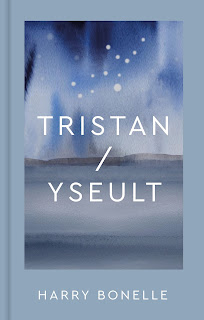Madame Matisse by Sophie Haydock
Madame Matisse
by Sophie Haydock
My thanks to the author and the publisher for sending me a copy to review and to
Random Things Tours for inviting me to take part on the tour
Synopsis
This is the story of three women - one an orphan and refugee who finds a place in the studio of a famous French artist, the other a wife and mother who has stood by her husband for nearly forty years. The third is his daughter, caught in the crossfire between her mother and a father she adores.
Amelie is first drawn to Henri Matisse as a way of escaping the conventional life expected of her. A free spirit, she sees in this budding young artist a glorious future for them both. Ambitious and driven, she gives everything for her husband's art, ploughing her own desires, her time, her money into sustaining them both, even through years of struggle and disappointment.
Lydia Delectorskaya is a young Russian emigree, who fled her homeland following the death of her mother. After a fractured childhood, she is trying to make a place for herself on France's golden Riviera, amid the artists, film stars and dazzling elite. Eventually she finds employment with the Matisse family. From this point on, their lives are set on a collision course....
Marguerite is Matisse's eldest daughter. When the life of her family implodes, she must find her own way to make her mark and to navigate divided loyalties.
Based on a true story, Madame Matisse is a stunning novel about drama and betrayal; emotion and sex; glamour and tragedy, all set in the hotbed of the 1930s art movement in France. In art, as in life, this a time when the rules were made to be broken...
My Review
This is an intriguing insight into the lives of three women who played a large part in the life of Henri Matisse and were the inspiration behind some of his most well known paintings. I have to admit I am not a huge fan of Matisse and his style of painting , but you don’t need to be to enjoy the book
Based on the women in the lives of Matisse, Sophie Haydock tells the story from their individual perspectives and their feelings as to how they fitted into his life and the lives of those he was with., whilst also telling the story of their lives. Lydia especially intrigued me and will we ever know the full extent of the relationship she had with Matisse, I think not, for the two people that really know are no longer with us.For me this was an intriguing story from start to finish and I found myself time and time again, researching the different paintings that are talked about in the book along with looking up any other information about them. The clever of way that Haydock has written the book means that you read about one woman and her feelings whilst also looking at the others through her eyes which cleverly gives a very well rounded image of what each of them was like and how they fitted supported Matisse in both his life and his work.
I loved the book and in many respects , like Matisse, it pushes boundaries and gets you thinking about the women behind the famous painter, the ones who are often forgotten in the passage of time.
About the Author
Sophie Haydock is an author, editor and journalist (Sunday Times, Financial Times, Guardian), based in Folkestone, Kent, where she is curator of Folkestone Book Festival. Her debut, The Flames – about the women who posed for the scandalous artist Egon Schiele in Vienna a century ago – was named by the Times as one of the Best Historical Fiction Books of 2022. It was longlisted for the HWA Debut Crown Award, and the Italian translation, Le Fiamme, won the Premio Letterario Edoardo Kihlgren for debut novels. She worked for the Sunday Times Short Story Award and is associate director of the Word Factory. Her Instagram @egonschieleswomen has 110,000 followers. Visit: sophie-haydock.com






Comments
Post a Comment